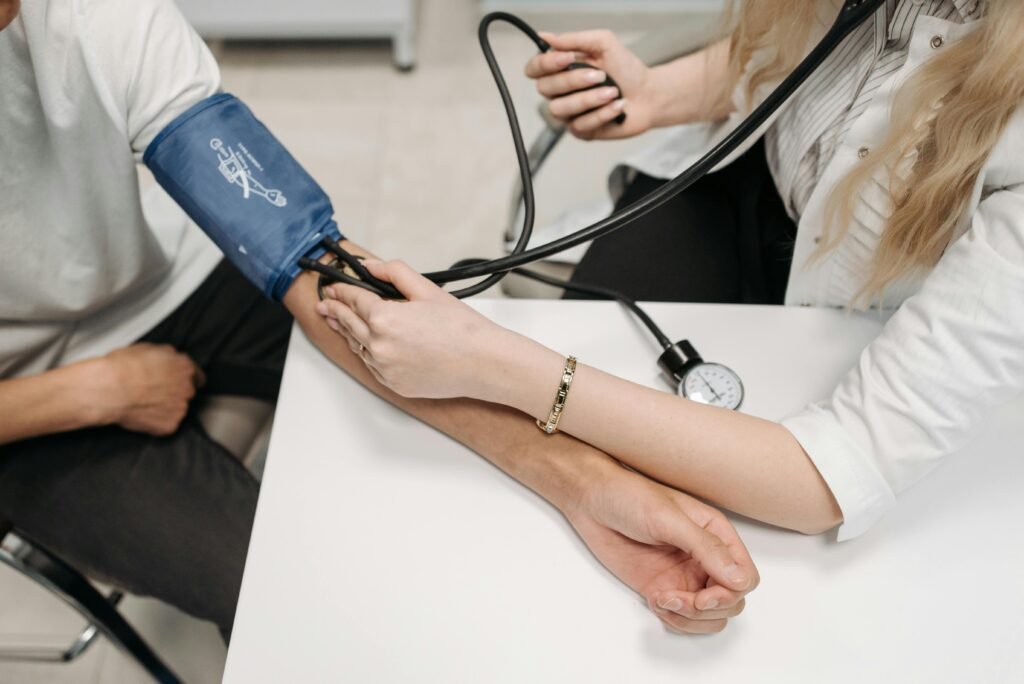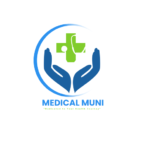Did you know
Approximately 1 in 3 adults in the U.S. have high blood pressure. This common condition, often known as high blood pressure, can lead to serious health problems including heart disease, stroke and kidney damage if not controlled. Despite its prevalence, many people are unaware of effective strategies to control their blood pressure and improve their overall health.
Managing high blood pressure is not just about medication; Lifestyle changes can make a significant difference. In this blog, we’ll explore ten practical and evidence-based strategies that can help you take control of your blood pressure. From dietary adjustments to stress management techniques, these tips are designed to empower you to live a healthier, more balanced life. Let’s delve deeper and learn how you can start your journey to better blood pressure control today.

Risks Of High Blood Pressure
High blood pressure often goes unnoticed because it usually has no symptoms. However, its long-term effects can be serious and far-reaching. Here are some of the major health risks associated with uncontrolled high blood pressure:
1. Heart Disease
High blood pressure increases the workload on the heart, causing the heart muscle to thicken. This can result in heart failure, coronary artery disease, and other heart problems.
2. Stroke
High blood pressure is a major risk factor for stroke. This can cause blood vessels in the brain to burst or become blocked, causing significant brain damage and disability.
3. Kidney Damage
The kidneys filter waste from the blood, and high blood pressure can damage the blood vessels in the kidneys, impairing their ability to function. This can lead to chronic kidney disease or even kidney failure.
4. Vision Loss
High blood pressure can damage the blood vessels in the eyes, leading to vision problems and conditions such as hypertensive retinopathy, which can result in blurred vision or even blindness.
5. Aneurysm
Increased blood pressure can weaken the walls of blood vessels, leading to the formation of aneurysms. If an aneurysm bursts, it can be life-threatening.
6. Metabolic Syndrome
High blood pressure is a component of metabolic syndrome, which includes a group of conditions such as high blood sugar, increased waist circumference and abnormal cholesterol levels. This syndrome significantly increases the risk of heart disease and diabetes.
7. Cognitive Decline
There is a link between high blood pressure and cognitive decline, including conditions like dementia. Poor blood flow to the brain can affect cognitive functions over time.
8. Sexual Dysfunction
In men, high blood pressure can cause erectile dysfunction, while in women; it can contribute to decreased libido or difficulty achieving orgasm.

Wrap-up On Risk
Understanding these risks highlights the importance of effectively managing high blood pressure. By adopting a healthy lifestyle and seeking medical advice when needed, you can significantly reduce your risk of these serious health complications.
Tips for Managing High Blood Pressure
Understanding the risks associated with high blood pressure makes it essential to learn how to manage the high blood pressure.
Managing high blood pressure effectively often involves a combination of lifestyle changes and, in some cases, medication. Here are several practical tips that can help:
1. Adopt a Heart-Healthy Diet
DASH Diet:
The Dietary Approaches to Stop Hypertension (DASH) diet emphasizes fruits, vegetables, whole grains, lean proteins, and low-fat dairy. It encourages reduction of saturated fat, cholesterol and sodium.
Reduce Sodium Intake:
Aim to consume less than 2,300 mg of sodium per day, or even less (1,500 mg) if you have high blood pressure. Read labels and avoid processed foods, which often contain hidden salts.
Increase Potassium:
Potassium-rich foods (such as bananas, spinach and sweet potatoes) can help balance sodium levels and reduce stress in the walls of blood vessels.
2. Engage in Regular Physical Activity
Aerobic Exercise:
Aerobic exercise is a great way to boost your heart health and manage blood pressure. Aim for at least 150 minutes of moderate aerobic activity such as:
Brisk walking, swimming or cycling each week. Regular exercise strengthens the heart and improves blood circulation, which can lower blood pressure.
Strength Training: Build Muscle, Lose Stress:
It is equally important to include strength training in your daily routine. Lifting weights or using resistance bands not only helps build muscle but also supports a healthy metabolism. Aim to include strength training exercises at least two days a week.
Bodyweight exercises like push-ups and squats are great options if you’re just starting out.
Flexibility and Balance: Find Your Zen:
Don’t forget about flexibility and balance exercises. Exercises such as yoga, Pilates and Tai Chi can help reduce stress and promote relaxation. These activities can be particularly beneficial for your mental health and have a positive effect on your blood pressure.
3. Maintain a Healthy Weight
Losing even a small amount of weight (5-10% of your body weight) can significantly reduce blood pressure. Keeping your weight within a healthy range is important to control blood pressure.
4. Limit Alcohol Consumption
When it comes to managing high blood pressure, lifestyle choices play a vital role, and one area that deserves attention is alcohol consumption. While many people enjoy a drink from time to time, understanding how alcohol affects your blood pressure can help you make healthy decisions.
Let’s explore the connection between alcohol and blood pressure, and discover how limiting your intake can lead to better health outcomes.
How Alcohol Affects Blood Pressure
You may be surprised to learn that alcohol can have a significant effect on your blood pressure:
Temporary Spikes:
Drinking alcohol can cause a temporary increase in blood pressure. If this becomes a regular occurrence it can contribute to long-term high blood pressure.
Weight Gain:
Alcohol is rich in calories, and excessive consumption can lead to weight gain – a major risk factor for high blood pressure.
Medication Interference:
If you are taking blood pressure medication, alcohol may interfere with its effectiveness, making it harder to manage your condition.
Increased Stress Levels:
Excessive indulgence can lead to high stress and poor lifestyle, both of which can negatively affect your blood pressure.
5. Quit Smoking
Smoking increases blood pressure and damages blood vessels. Quitting smoking can improve overall heart health and reduce blood pressure. Quitting can have immediate and long-term benefits:
Lower Blood Pressure:
Within a few weeks of quitting smoking, many people experience a reduction in blood pressure levels.
Improved Heart Health:
Quitting smoking reduces the risk of heart disease and improves overall heart health.
Better Circulation:
Quitting can increase blood flow and oxygen levels in the body, making the heart’s work easier.
6. Manage Stress
Chronic stress can contribute to high blood pressure. Techniques such as mindfulness, meditation, deep breathing exercises and yoga can help reduce stress levels.
Consider engaging in hobbies, spending time with loved ones, or participating in activities that bring joy and relaxation.
7. Monitor Blood Pressure Regularly
Keeping track of your blood pressure readings at home can help you and your healthcare provider understand how well your management strategies are working. It can also alert you to any significant changes that may need attention.
8. Follow Medication Guidelines
If medication is prescribed, take it as directed. Communicate with your healthcare provider about any side effects or concerns. Never stop or change your medicine without consulting them first.
9. Get Adequate Sleep
Poor sleep can contribute to high blood pressure. Aim for 7-9 hours of quality sleep per night. Establish a regular sleep routine and create a relaxing environment.
10. Educate Yourself
Be informed about high blood pressure and its management. Understanding your situation can empower you to make healthy choices and advocate for your health.

Wrap-up
Managing high blood pressure is an important step toward maintaining overall health and well-being. As we’ve discussed, high blood pressure can cause serious health risks, but the good news is that there are many effective strategies to control it. By making lifestyle changes, such as following a heart-healthy diet, engaging in regular physical activity, managing stress, and monitoring your blood pressure, you can significantly reduce your risk of complications.
Including personal stories and testimonials can inspire and motivate, reminding us that we are not alone on this journey. Every small change you make can make a meaningful improvement in your health and quality of life.
Remember, it is important to consult your healthcare provider before making significant changes to your lifestyle or treatment plan. They can provide guidance tailored to your specific needs and help you set realistic goals.
Ultimately, taking responsibility for your health is a powerful step. Whether you’re starting your journey or well on your way to better blood pressure management, know that every effort counts. Share your experiences, connect with others and don’t hesitate to ask for support when you need it.
Thank you for reading! We hope you found these tips useful. If you have any questions or want to share your story, please leave a comment below. Together, we can empower each other to live healthier, happier lives.
Thank you for reading! We look forward to hearing your thoughts and experiences. Let’s take action together!
Share Your Story
We want to hear from you! Have you successfully managed your high blood pressure? What strategies worked for you? Sharing your experience can inspire others who are facing similar challenges. Leave your story in the comments below.

Pingback: Natural Ways To Reduce Uric Acid Levels